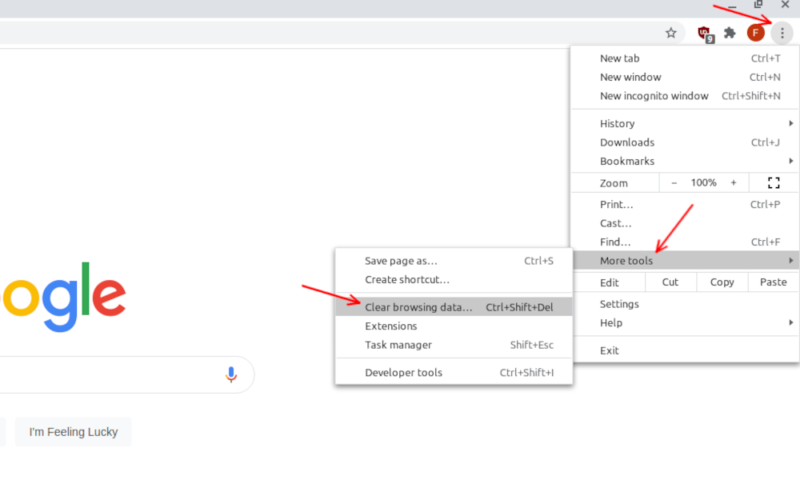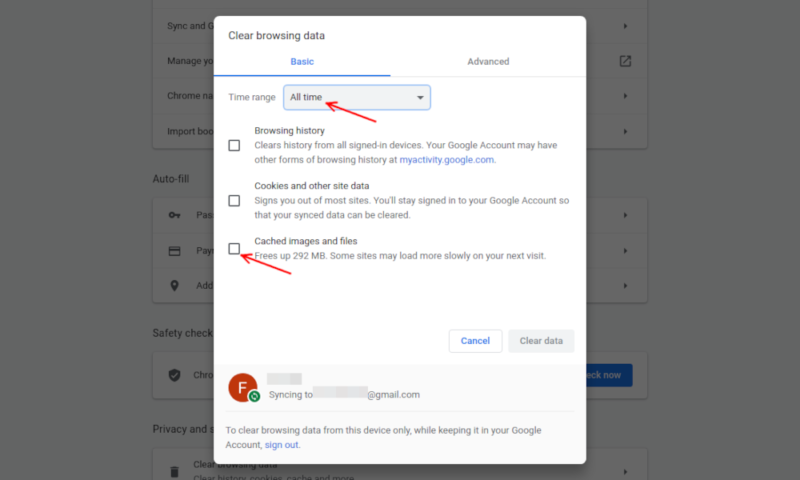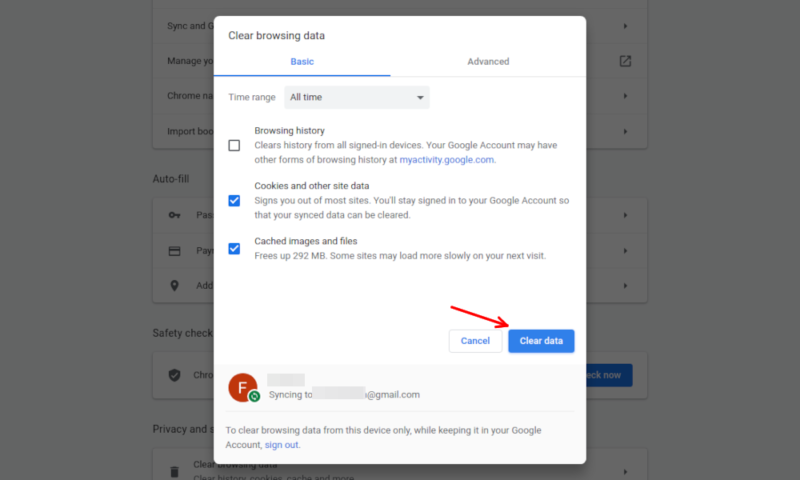How to Increase Download Speed: 10 Tips to Make Your Internet Faster in 2025
The internet is a core part of modern life, and faster speeds have never hurt anyone. Although your ISP and the plan you’re on will limit your maximum speeds, there are many ways to get the most out of that limited bandwidth and speed up your internet connection.
We’ve all been there: you get home after a hard day of work and sit down to watch your favorite show, only to see constant buffering and drops in video quality. Then you take out your phone and run a speed test, confirming what you feared — slow download speed. There’s no need to worry, though. We’ll show you how to increase download speed in a few easy ways.
Speeding up your internet isn’t quite as simple as turning a dial, but these steps will help you. Whether you’re using streaming services, gaming online with your friends or just browsing the net on your smartphone, everyone can benefit from faster internet.
-
08/15/2024 Facts checked
We updated the article to include a list of possible reasons why your internet connection might be slow.
How to Increase Download Speed & Make Your Internet Faster
Following these 10 tips can fix many download speed issues, especially if you normally have a decent connection. Be sure to run internet speed tests between each tip, to check if you’ve resolved the issue and the connection is delivering good internet speed.
1. Reboot Your Device and Router
Yes, this first piece of advice is rather cliché, but it really works. Errors and bugs affect all computers, and in a router, this means that data takes longer to go from point A to point B. So, if you normally have decent download speeds, but they’ve recently dropped, try a quick reboot.
Although the best method does depend on your router, there are a few options. The easiest way is to just unplug it, but you can also press the power button or turn it off through your browser. Be sure to leave it off for about 10 seconds to ensure it fully shuts down.
If you’re rebooting a PC though, make sure you use the “Reboot” option — don’t just shut it down and turn it back on. The reboot button has a different function which actually resets a few key settings.
2. Turn Off Simultaneous Downloads to Fix Slow Download Speed for One File
If you’re trying to download multiple things at once, the one file you want to download quickly might take longer to download. To fix this issue, simply pause all other downloads to increase the slow download speed for your desired file.
You might not even know you’re downloading other files, though. Some apps and drivers will download updates automatically. Disabling automatic updates might not be the best idea, especially for drivers, though if you’re in a rush, you can check for any background processes that are currently downloading files and pause them temporarily.
3. Check Your Data Cap & Contact Your ISP
Some internet providers will put data caps in your internet plan. Although most ISPs will simply charge you extra when you go past this limit, others will decrease your internet download speeds until the end of the month.
There should be a website or phone number you can use to see if your internet plan has these limits. If you’re unsure, you can often find these on any official paperwork from your ISP or by going to their website. Read our guide to learn how to use a VPN to solve some of the ISP-specific speed issues.
4. Move Closer to Your Router & Remove Obstacles in Its Path
As you get further from your router, the quality of the signal will decrease. This means that more of the data packets will get lost, and your device won’t receive all the information the router tries to send it. Sending the data again takes time, so the overall speed decreases.
A typical home router on the 2.4 GHz frequency will have a clear range of around 300 feet. However, the walls, doors and furniture in your house can easily drop this by half or more. Even if you’re in this area, fewer data packets will be lost if you’re closer to the router, so it’s worth trying this before you continue.
You can also try moving the router to a more central location, rather than, for example, the corner of your house, which decreases its effectiveness.
5. Disconnect Other Connected Devices From Your Network
Disconnecting other wireless devices — such as home security and smart home devices — from your network has the obvious benefit that they aren’t taking any of your precious bandwidth. It’s also easy to do by simply turning the device off, turning the WiFi connection on your device off entirely or connecting to a different network.
However, there is a secondary benefit to this. Every device connected has to send data to the router to stay on the network. This data can interfere with yours and degrade your signal quality, especially if you’re far away from the router. So, by disconnecting other devices, you’ll decrease the time spent resending data and increase your effective speeds.
6. Use an Ethernet Cable Instead of Wi-Fi
Although this can be a hassle, most computers and laptops have an ethernet port that you can use to create a physical connection with your router. A standard Cat 5e cable is capable of 1,000 Mbps, around double a 2.4 GHz connection in ideal conditions.
Not only are the speeds better, but using an ethernet cord is also a good way to get around network interference and distance limits. You can easily reach 300 feet with an ethernet cable without your speeds decreasing.
7. Clear Your Browser’s Cache
The browser cache is usually intended to make your browsing experience faster, but if it gets filled with unnecessary files, it can have the opposite effect. All internet browsers will have a way to do this, but it generally follows these three steps. Here’s how to increase internet speeds by clearing your cache:
- Open the “Clear Browsing Data” Page
Click the three dots in the top-right corner to open a dropdown menu, then choose “more tools” and select “clear browsing data.”

- Choose What You Want to Delete
In the “clear browsing data” window, make sure it’s clearing the cache and any cookies with the time range of “all time.”

- Clear the Data
You should now click the “clear data” button. This may take a few minutes but will delete everything you’ve selected.

8. Scan Your Computer for Viruses
Sometimes, your internet speed will slow down because something on your device is taking up all the bandwidth. This might be all right if it was an important update or a large download — which you can check inside Windows task manager — but it can be infuriating if it’s a virus.
Luckily, there’s plenty of good antivirus software out there. You can even get free antivirus software if you only want to check to see if there’s a major problem with your device. Simply install a reliable program and run a full system scan to find out if there’s a bug hiding somewhere.
9. Get a Better Router
This step might cost you some money, but it’s well worth it. Getting a better wireless router will give you more options, such as using a faster frequency band or WiFi protocol. You can even get routers that do other things, like hiding your location with VPN routers.
Getting a new router also lets you repurpose your existing one. You could use it as a switch for more ethernet ports, turn it into a separate dedicated modem or wire it up as a second wireless access point to expand your home network. Whatever you choose, your WiFi speed should increase.
10. Get a New Internet Service Provider
If you’ve tried everything and you’re still experiencing slow internet speeds, then it may be time to shop around for a new ISP. Internet companies are always trying to one-up each other to get your business, so there may be a newer, faster service that’s now available to you.
Even if you live out in the middle of nowhere, and there’s only one traditional provider, there are other options. Unlimited mobile hotspot devices are getting faster and more reliable, and high-speed satellite internet options — such as Elon Musk’s Starlink — are starting to become available.
Why Is My Download Speed So Slow?
Your download speed could be slow for a number of reasons — outdated hardware, a weak signal, ISP throttling or congestion on the server you’re connected to. Here are some more common reasons why your download speed might be slow:
- Network Congestion: If multiple devices are using the same network simultaneously, it can lead to congestion, slowing down your download speed.
- ISP Throttling: Internet Service Providers (ISPs) sometimes intentionally slow down your connection if they detect heavy usage, especially during peak times.
- Weak Wi-Fi Signal: If you’re far from the router or there’s interference (e.g., walls, other electronic devices), your Wi-Fi signal may weaken, reducing download speeds.
- Outdated Hardware: Older routers, modems, or network cables may not support higher speeds, limiting your download performance.
- Background Applications: Other programs or apps running in the background, such as updates, streaming, or cloud syncing, can consume bandwidth and slow down downloads.
- Server-Side Issues: The server you’re downloading from may be experiencing high traffic or technical issues, affecting your download speed.
- Poorly Configured Network Settings: Incorrect or outdated network settings on your device can lead to suboptimal performance and slower downloads.
- Malware or Viruses: Malware or viruses on your device can interfere with your internet connection, slowing down downloads.
- ISP Speed Plan Limitations: Your internet plan may have a speed cap, and you might be reaching the maximum download speed allowed by your plan.
- Wired vs. Wireless Connection: A wired connection (Ethernet) usually provides faster and more stable download speeds compared to wireless connections.
- Overloaded DNS Server: If your DNS server is slow or overloaded, it can delay the start of downloads, affecting overall speed.
- Router Settings: Some router settings, like Quality of Service (QoS), might prioritize certain types of traffic over downloads, slowing them down.
Final Thoughts
Given that barely half the U.S. population has internet speeds of over 25 Mbps — the FCC’s speed benchmark and the Netflix recommended speed for 4K streaming — it’s no surprise that internet speed issues are so common.
However, with these 10 tips, you should be able to get more out of your internet connection. So, reset your router, plug in your device and clear out your browser cookies and your computer, then you can get back to whatever you were doing but hopefully without any buffering or lag.
Have you been having WiFi issues? Did these tips help? Let us know your thoughts in the comments section below. Thanks for reading.
FAQ: How to Speed Up Your Internet
Many things can slow down your internet, but the three things you should check are your internet plan, the strength of your WiFi signal and where the data’s going. However, if you should be getting faster speeds and neither your connection nor your PC is the problem, you’ll probably need to speak to your ISP.
There are many ways to speed up an internet connection, such as resetting your router, calling your ISP to resolve any issues on their end, or just getting better clearance between you and your WiFi router. However, you’ll never be able to get a faster connection than what the contract with your ISP allows.
Yes. You can increase the strength of your WiFi signal by placing a range extender near your device and removing any other devices on the network. This is a good way to increase your internet speed if you can’t run a cable to the device.


